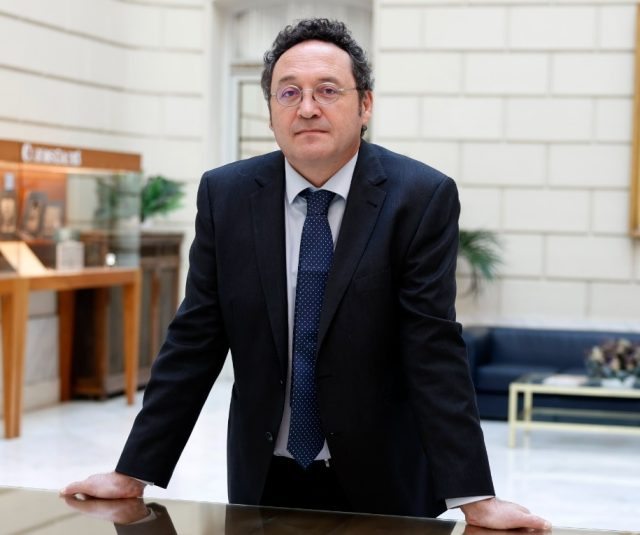
The Supreme Court’s recent decision to search the office of Spain’s Attorney General, Álvaro García Ortiz, marks another alarming chapter in what many see as the ongoing erosion of Spain’s rule of law under Prime Minister Pedro Sánchez’s administration. García Ortiz is under investigation for allegedly leaking confidential information concerning communications involving Alberto González Amador, the partner of Isabel Díaz Ayuso, the president of the Madrid region. This unprecedented search, directed by Supreme Court magistrate Ángel Luis Hurtado, aims to seize García Ortiz’s electronic devices as potential evidence, with case details set to remain confidential for a month.
At the center of this case are accusations that García Ortiz improperly disclosed sensitive communications between the prosecutor and González Amador’s attorney, possibly including emails shared with the Madrid Chief Prosecutor. The judge’s decision to pursue a high-level search signals that the court sees serious grounds for investigating these alleged unauthorized disclosures, which only intensify concerns over the state of Spain’s prosecutorial leadership. As the investigation progresses, it raises deeply troubling questions about accountability and transparency within Sánchez’s government. García Ortiz, despite mounting calls for his resignation from Spain’s leading prosecutors’ associations, has insisted on staying in his role, claiming his continued tenure preserves stability within the Spanish Prosecutor’s Office—a statement that many have criticized for its audacity and seeming disregard for ethical accountability.
Beyond this immediate scandal, Sánchez’s administration has been increasingly marked by a disturbing tension between political influence and judicial independence. With numerous prominent officials–and even the wife of Spanish Prime Minister Pedro Sánchez for alleged innfluenced peddling–under investigation and recurring cases that test the boundaries of government accountability, Spain’s judicial institutions are facing unprecedented strain.
The García Ortiz controversy follows a series of high-profile cases during Sánchez’s tenure, which critics widely perceive as attempts to undermine the judiciary’s autonomy and power to act impartially. This pattern of interference and the government’s willingness to challenge established judicial norms paint a disturbing picture of a government where the checks and balances fundamental to a healthy democracy appear to be under siege.
The Attorney General’s situation casts a long shadow over Sánchez’s broader approach to judicial and prosecutorial appointments, which many argue have increasingly been driven by political motives rather than merit. Such actions risk further compromising the integrity of Spain’s democratic institutions and suggest a troubling shift toward a judiciary influenced by partisan considerations. The Supreme Court’s willingness to pursue this search, despite García Ortiz’s high-profile position, is a hopeful sign that Spain’s judiciary remains committed to defending the rule of law and resisting political encroachment at every level of governance, despite Sánchez’s attempts to interfere with the processes currently investigating his wife’s business dealings.
As the investigation into García Ortiz unfolds, Spain is confronted with a stark reminder that a nation’s rule of law depends on transparent, accountable institutions and independent judicial oversight. With each new scandal involving high-ranking officials, Sánchez’s government risks deepening public mistrust and damaging the democratic norms that form the foundation of Spain’s political system. Should these patterns persist, the country may face long-term repercussions, with its political and judicial institutions weakened in the eyes of both the public and the international community. The case against García Ortiz, therefore, serves as a critical test, not only of individual accountability but of Spain’s capacity to safeguard the independence, credibility, and integrity of its democratic structures during a time of increasing political tension and public scrutiny.
Meanwhile, the European Commission and its president, Ursula Von der Leyen, seems largely silent about Spain’s own domestic threats against the Rule of Law, and other fundamental EU principles.



 Subscribe
Subscribe